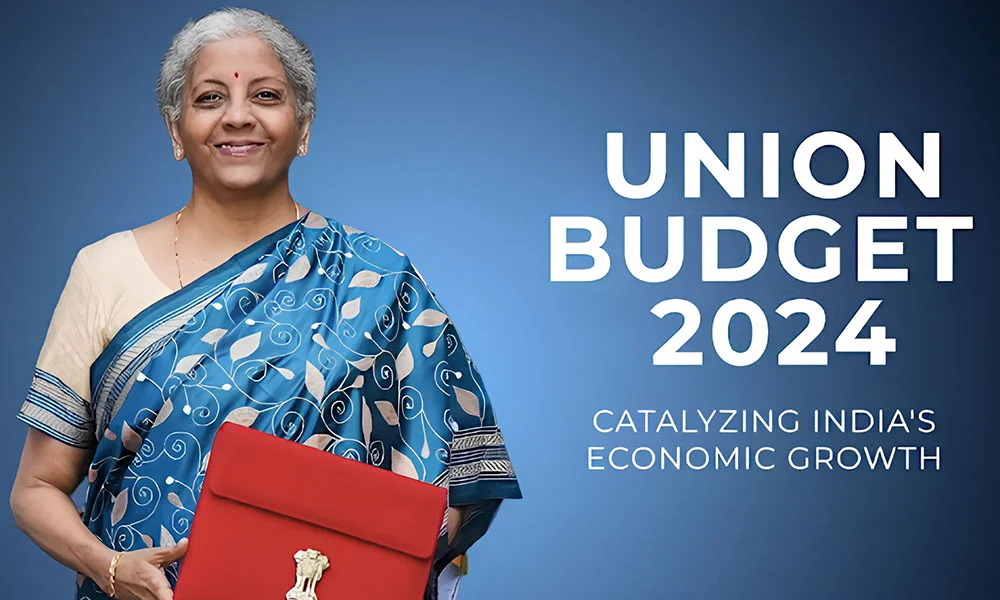Union Budget 2024: A Strategic Stimulus for India's Growth
The Union Budget 2024, presented by Finance Minister Nirmala Sitharaman, is not just a fiscal statement; it is a strategic blueprint aimed at propelling India's economic trajectory amidst global uncertainties. With significant fiscal incentives and structural reforms, this budget places a strong emphasis on skilling, infrastructure development, and sustainable growth, positioning employment-centric sectors at its core. Among the various sectors, real estate stands out as a key beneficiary, with several provisions set to invigorate investment and growth.
Key Budgetary Highlights for Real Estate
One of the most notable changes in the budget is the reduction in Long-Term Capital Gains (LTCG) tax from 20% to 12.5%, although the indexation benefits have been removed. This adjustment is designed to attract more investment into the real estate sector. Furthermore, the budget introduces a rollover benefit: if the sale proceeds from a property are reinvested in buying another house, capital gains up to ₹1 crore are exempt from tax. This provision is expected to encourage more transactions and reinvestments in the housing market.
The budget's strategic focus on urban development is underscored by a monumental allocation of ₹10 lakh crore under the Pradhan Mantri Awas Yojana (PMAY) Urban Scheme, aiming to construct 3 crore houses. Additionally, the emphasis on rental housing through dormitories in industrial parks via the Public-Private Partnership (PPP) model and the sanctioning of 12 new industrial parks highlight a robust vision for urban development. This sustained infrastructure impetus, reflected in the ₹11.11 lakh crore Capex allocation, is anticipated to significantly boost affordable rental housing for industrial laborers.
Real Estate Sector: A Catalyst for Economic Growth
The real estate sector has welcomed the Union Budget 2024 with enthusiasm. Innovative initiatives such as the digitization of land records, GIS mapping, and urban housing for the middle class are expected to have a profound multiplier effect on the sector, currently experiencing double-digit growth. The budget's focus on sustainable development through solar and renewable energy, water, and solid waste management aligns perfectly with the goal of climate-resilient real estate development.
The reduction in the long-term capital gains tax, alongside aligning the holding period for long-term capital gains with that of equity shares by reducing it to 24 months, will significantly boost much-needed investment and enhance competitiveness within the sector. Encouraging state governments to reduce stamp duty and other development premiums is a decisive step, bolstering urban housing growth, optimizing development costs, and invigorating the demand curve. The implementation of redevelopment and transit-oriented development schemes is pivotal for driving urban growth, generating employment, attracting investments, and boosting economic growth.
Economic Outlook: A Robust Path Forward
The Union Budget 2024 reflects a strategic economic stimulus, ensuring India's macro growth trajectory remains robust amid global uncertainties. The alignment between the economic survey and the budget outlays, coupled with the aim to cap the fiscal deficit at 4.9%, will help maintain inflation control and encourage credit borrowings. The budget's laser-focused priorities in skilling, tourism, MSME, education, urban development, and infrastructure, along with initiatives for women and youth development, inject much-needed vitality into the economy.
Finance Minister Nirmala Sitharaman's record seventh consecutive Union Budget emphasizes increased standard deductions and revised tax rates for salaried individuals under the new tax regime, aiming to boost consumption. The focus on job creation and boosting consumption is expected to benefit the consumer goods, real estate, and auto sectors. With India's economic growth described as a shining exception amidst global challenges, the budget's thoughtful direction and positive momentum set the course for sustained economic growth, keeping India shining brightly on the global stage.
Overall, the Union Budget 2024 is rated an 8 out of 10, recognizing its strategic stimulus and potential to drive India's economic growth forward.


